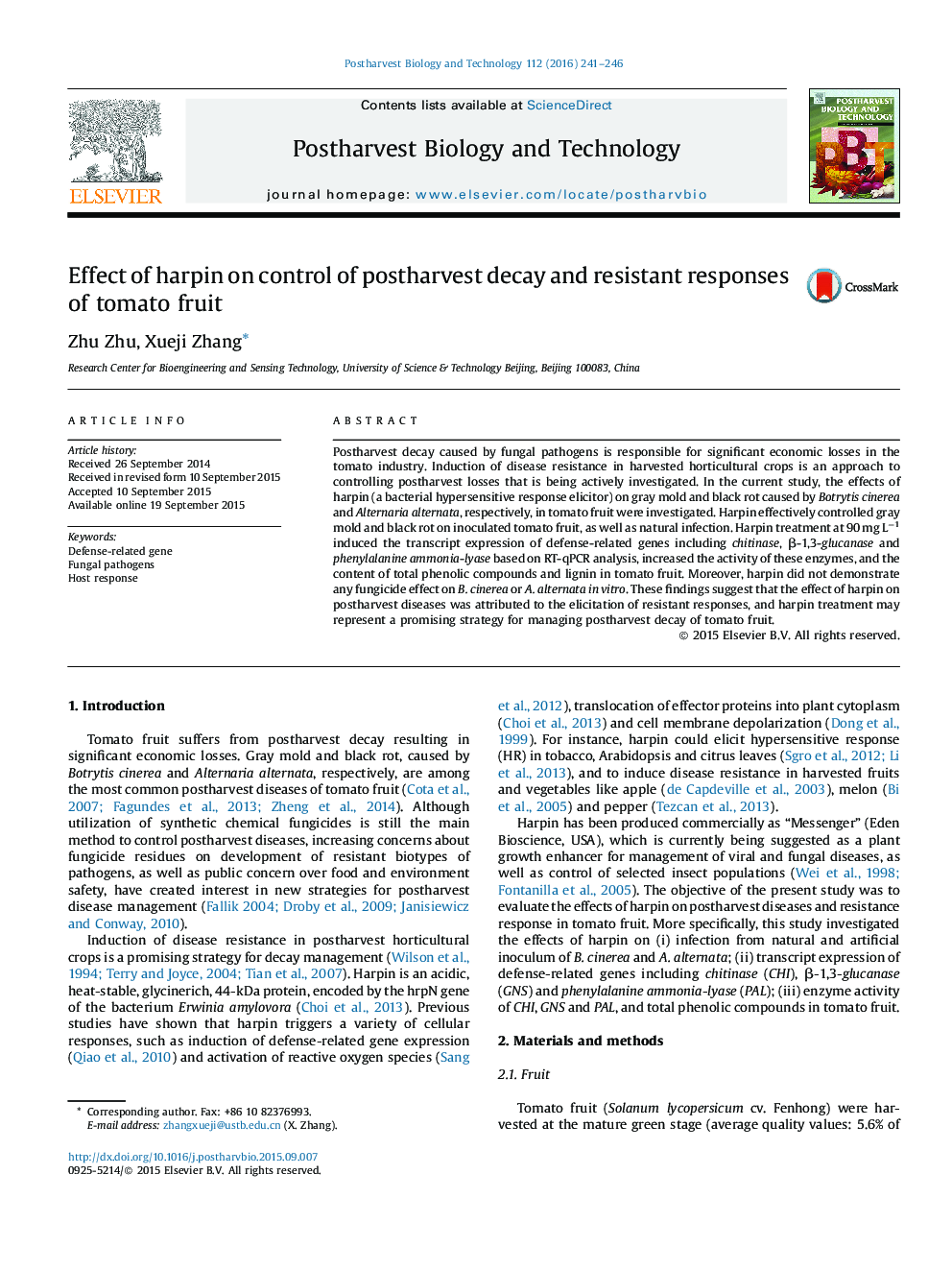| Article ID | Journal | Published Year | Pages | File Type |
|---|---|---|---|---|
| 4517943 | Postharvest Biology and Technology | 2016 | 6 Pages |
•Harpin controlled postharvest decay of tomato fruit.•Harpin induced resistant response of tomato fruit.•Harpin increased content of total phenolic compounds and lignin in tomato fruit.
Postharvest decay caused by fungal pathogens is responsible for significant economic losses in the tomato industry. Induction of disease resistance in harvested horticultural crops is an approach to controlling postharvest losses that is being actively investigated. In the current study, the effects of harpin (a bacterial hypersensitive response elicitor) on gray mold and black rot caused by Botrytis cinerea and Alternaria alternata, respectively, in tomato fruit were investigated. Harpin effectively controlled gray mold and black rot on inoculated tomato fruit, as well as natural infection. Harpin treatment at 90 mg L−1 induced the transcript expression of defense-related genes including chitinase, β-1,3-glucanase and phenylalanine ammonia-lyase based on RT-qPCR analysis, increased the activity of these enzymes, and the content of total phenolic compounds and lignin in tomato fruit. Moreover, harpin did not demonstrate any fungicide effect on B. cinerea or A. alternata in vitro. These findings suggest that the effect of harpin on postharvest diseases was attributed to the elicitation of resistant responses, and harpin treatment may represent a promising strategy for managing postharvest decay of tomato fruit.
